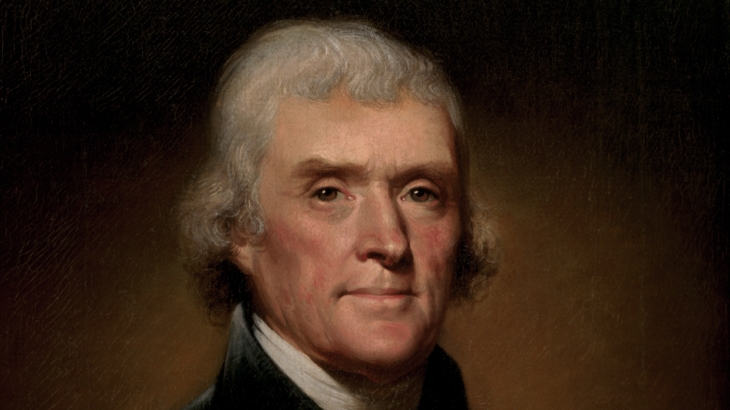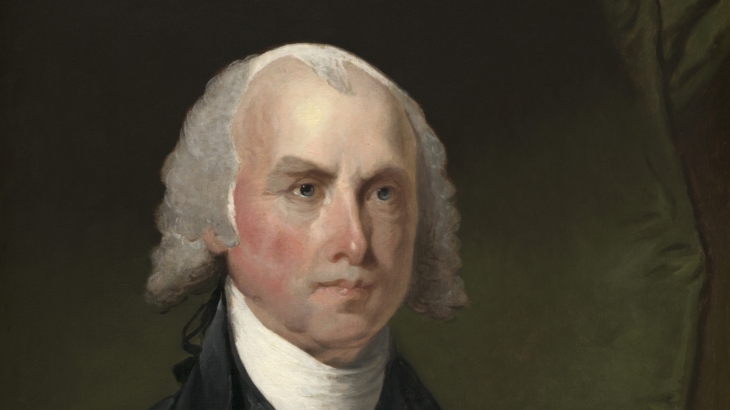LISTEN ON SOUNDCLOUD:
“The greatest power on earth.” –James Madison
The three branches of our federal government possess a co-equal authority to apply checks and balances to protect the specific delegation of powers in order maintain separation of powers. However, to propose that the only check upon the abuse of power by the federal government is within the federal government is absurd. The drafters of our Constitution, and more relevantly those who ratified the Constitution wrote extensively about their concerns of a possibility of an expanding and consuming federal government over time. They knew from their own history that a government cannot be trusted to check itself and a government whose only check and balance is itself is kingdom regardless of the name. This is the power of the Constitutional Republic; that there exists a powerful check upon federal power outside the federal government.
In 1789, then Representative James Madison gave an address to the House of Representatives where he explained that the people need not fear a possible overreaching, ever expanding power originating in the federal government as long as we hold fast to the limits of the Constitution. His chief point in this declaration was that there exists a great check of federal power, one that exists outside the federal government that will be the greatest guardian of the people’s liberties. Madison says:
“…the state legislatures will jealously and closely watch the operations of this government, and be able to resist with more effect every assumption of power than any other power on earth can do; and the greatest opponents to a federal government admit the state legislatures to be sure guardians of the people’s liberty.”
Because the States were created as independent Sovereign governments; because the States created the Constitution; because the States are the delegators of the federal power, Madison is explaining that the State legislators will not only be compelled to watch the operation of the federal government very closely but they will also possess the authority to make sure that the federal government does not abuse its power or steal power from the States. Madison says, this relationship of higher power and lower power will create a duty within the State legislators to protect the rights of the people by ensuring that their creation never operates outside its limited and defined delegation of powers.
Madison repeats this principle of the external check of federal power in his Virginia Resolution of 1789 and Virginia Assembly Report of 1800:
“…in the case of deliberate, palpable, and dangerous exercise of other powers not granted…the States…have the right, and are in duty bound, to interpose…” Virginia Resolution of 1789
“…that the ultimate right of the parties to the Constitution [The States], to judge whether the compact [The Constitution] has been dangerously violated, must extend to violations by one delegated authority as well as by another–by the judiciary as well as by the executive, or the legislature.” Virginia Assembly Report of 1800
What ought to add to the State’s obligation to keep its creation, the federal government, under control, exists in the fact that the Declaration of Independence identifies the sole purpose of the creation of the States is to “secure the Rights” of the people. A federal government unlimited in its power, or limited only by its own will or whim is a totalitarian government, putting the rights of the people at risk. When the States are not keeping their creation within its limited and defined bounds, they are failing to secure the rights of the people. Thomas Jefferson articulates this danger in 1812:
“when all government, domestic and foreign, in little as in great things, shall be drawn to Washington as the centre of all power, it will render powerless the checks provided of one government on another…If the States look with apathy on this silent descent of their government into the gulf which is to swallow all, we have only to weep over the human character formed uncontrollable but by a rod of iron…”
KrisAnne Hall began her career as a biochemist, Russian linguist for the US Army, and received her Juris Doctor from the University of Florida College of Law. KrisAnne was a prosecutor for the State of Florida and practiced First Amendment Law for a prominent national non-profit Law firm. KrisAnne is now the founder of LibertyFirstUniversity.com and travels the country teaching the foundational principles of Liberty and our Constitutional Republic. KrisAnne is the author of 6 books on the Constitution and Bill of Rights; she also has a nationally syndicated radio show. KrisAnne has been featured on C-SPAN TV and C-SPAN Book TV. KrisAnne can be found at www.KrisAnneHall.com
Click Here to have the NEWEST essay in this study emailed to your inbox every day!
Click Here to view the schedule of topics in our 90 Day Study on Congress.


